Private Student Loan Forgiveness
If, like millions of Americans, you’re struggling with student loan debt, you’re probably trying to find out what student loan relief options are available to you: Do you qualify for a deferment of your student loan payments? a forbearance? student loan forgiveness?
You may have heard about various different student loan forgiveness programs — programs that allow you to essentially “cancel” a portion of your outstanding student loan debt — and you’re wondering how you can qualify.
While there are, in fact, a number of student loan forgiveness opportunities out there, these programs are primarily available for federal student loans, not private loans.
As you research your student loan forgiveness options, it’s important to understand the difference between federal and private student loan forgiveness, how student loan forgiveness programs work, and the different ways in which student loans can be “forgiven.”
- What is student loan forgiveness?
- Forgiven, discharged, or cancelled student loans — what’s the difference?
- Federal vs. private student loan forgiveness
- How are student loans “forgiven”?
- Will I owe taxes on forgiven student loans?
- Can defaulted student loans be forgiven?
- Other private student loan relief options
What is Student Loan Forgiveness?
Broadly speaking, student loan forgiveness refers to the cancellation of all or part of your student loan debt.
When a lender “forgives” a portion of your student loans, that portion of your student loans is essentially wiped away. You will no longer owe any payments, fees, or interest on student loans that have been forgiven.
It’s worth noting, however, that forgiven student loan debt could be subject to federal and state taxes. Whether you will have to pay taxes on your forgiven student loans depends on the particular student loan forgiveness program you enrolled in.
Forgiven vs. Discharged vs. Cancelled Student Loans
You may sometimes hear about someone’s student loan debt being “cancelled” or “discharged,” and you’re wondering what the difference is between cancelled or discharged student loans and forgiven student loans.
Forgiveness, discharge, and cancellation all refer to the elimination of student loan debt. But the terms are usually used slightly differently, depending on the reason that the student loan debt was dismissed.
Student Loan Forgiveness
In general, you may find that the term “student loan forgiveness” is used to describe instances in which student loans are dismissed because the borrower met certain criteria or qualifications of a specific forgiveness program — for example, holding a specific public-service job in order to qualify for the federal Public Service Loan Forgiveness program, or being a teacher at a low-income school as a way to qualify for federal Teacher Loan Forgiveness.
Student Loan Discharge
In contrast, “discharge” will typically be used to describe situations in which student loans are dismissed either because:
- a borrower becomes unable to pay back their loans — such as a death or disability discharge, when a borrower dies or becomes permanently disabled — or
- there were disqualifying events at the borrower’s school — for example, a closed-school discharge if your school closes while you’re enrolled or soon after you withdraw, or a false-certification discharge if your school falsely certified your eligibility to receive a federal student loan.
Student Loan Cancellation
“Cancellation” is a more general term that is often used interchangeably with both “forgiveness” and “discharge.” Forgiven student loans and discharged student loans may both be referred to as having been “cancelled.”
Outside of student loan forgiveness and discharge programs, cancellation may also be used to refer to student loan debts that are dismissed in a settlement.
In a student loan debt settlement, an agreement is negotiated with your lender for your lender to “settle” your student loans (i.e., consider them as repaid) for less than the amount you owe. The portion of your student loan balance that your lender decides not to collect in the settlement is usually regarded as cancelled student loan debt.
Although you’ll no longer owe payments on your settled student loan, you could still be required to pay taxes on the cancelled debt, since the IRS generally views cancelled debt as income.
Federal vs. Private Student Loan Forgiveness
Whereas all borrowers of federal student loans have federally sponsored forgiveness programs potentially available to them (provided they can meet the forgiveness-program qualifications), private student loan forgiveness is incredibly rare.
Unlike federal student loans, which are issued by the federal government via the U.S. Department of Education, private student loans don’t have a centralized single lender, they’re not backed by taxpayer subsidies that can help fund repayment-assistance programs, and the federal government doesn’t own or control private student loans.
As a result, private student loan forgiveness doesn’t exist as a standardized, taxpayer-subsidized national program, available to all who qualify, in the way that federal student loan forgiveness does.
Getting Forgiveness for Private Student Loans
If you have private student loans, your repayment-assistance options — including possible student loan forbearance, deferment, and forgiveness programs — will vary from lender to lender.
But in general, student loan forgiveness is not a recourse offered by most lenders of private student loans.
Whether private student loan forgiveness is available to you will depend on whether your lender even offers it as a possible debt-relief option.
How Are Student Loans “Forgiven”?
Student loans can be forgiven or cancelled/discharged only under very specific circumstances. Keep in mind that student loan forgiveness is generally not available for private student loans.
- Federal student loan forgiveness programs
- Federal student loan discharges
- Private student loan discharges
- Private student loan settlement
If you’re looking for private student loan forgiveness, although a federal forgiveness program isn’t available to you, you may be able to get a portion of your private student loans cancelled through a successful private student loan settlement.
Federal Student Loan Forgiveness Programs
Although there are no national private student loan forgiveness programs, there are currently four federal programs that offer forgiveness for qualifying federal student loans:
- Public Service Loan Forgiveness
- Teacher Loan Forgiveness
- Federal Perkins Loan Forgiveness
- Income-Driven Repayment Forgiveness
The first three federal forgiveness programs are employment-based and require you to meet special employment criteria, as well as several other loan and repayment qualifications.
For the fourth program, income-driven repayment forgiveness, you need to be making payments on your federal student loans under a qualifying income-driven repayment plan. Then, after the full repayment period for your loans is over (in either 20 or 25 years), if your federal student loans still aren’t fully paid, any remaining student loan balance you have may be fully forgiven at that time, although you may have to pay taxes on the forgiven debt.
You’ll have to submit an application in order to be considered for these student loan forgiveness programs, you’ll generally need to be making on-time qualifying payments during the pre-forgiveness period, and in some cases, you may need to send periodic certifications of employment or income eligibility.
Each program has its own application process and qualification requirements. To determine if you qualify for federal student loan forgiveness under any of these programs, you should research the program details on the Department of Education’s website. (We’ve provided links to each program’s main information page for you in the list above.)
Federal Student Loan Discharges
Your federal student loans may be discharged due to special extenuating circumstances or specific hardships:
- Death discharge: in the event that the borrower dies; or, if you’re a parent who took out federal parent loans for your child, in the event that your child dies
- Disability discharge: if the borrower becomes totally and permanently disabled
- School-closure discharge: if your school closed while you were enrolled or soon after you withdrew
- False-certification discharge: if your school falsely certified your eligibility to receive a federal student loan
- Sept. 11 survivors discharge: available to spouses and parents of someone who died or became totally and permanently disabled in the terrorist attacks of Sept. 11, 2001, for the spouse’s own federal student loans and for any federal parent loans taken out by parents for their child
You can review the eligibility requirements and apply for these student loan discharges on the Department of Education’s website.
Private Student Loan Discharges
As in the case of student loan forgiveness, while federal student loans offer specific discharge protections to all qualified federal student loan borrowers, private student loans have no similar standard discharge protections.
For example, a private student loan lender may allow for discharge of a private student loan upon the death or permanent disability of the borrower, but they are not required to do so. The availability of any kind of hardship discharge for private student loans will vary from lender to lender.
To find out what discharge protections, if any, your private student loans carry, you’ll need to review your promissory note, which is the contract you signed when you first took out your private student loan.
Private Student Loan Settlement
If you’re looking for repayment help with your private student loans, although you may not have access to a private student loan discharge or private student loan forgiveness options, you may still be able to get a portion of your private student loan debt cancelled through a student loan settlement.
In a successful private student loan settlement, a negotiation is made with your student loan lender to settle your private student loans for less than what you owe — in other words, your lender agrees to accept a partial payment of your remaining student loan balance in lieu of a full payment, in order to consider the loan “settled.”
The difference between the amount you originally owed to your lender and the amount you ended up paying in a settlement can be considered as “cancelled” or discharged student loan debt, which could have potential tax implications.
After a successful private student loan settlement, although you will no longer owe any payments on those private student loans that you settled, you may still be liable for federal and state taxes on the amount of student loan debt that was cancelled.
Will I Owe Taxes on Forgiven Student Loans?
In general (with some exceptions), the IRS regards forgiven/cancelled debt as income.
If you have a debt forgiven, unless that type of debt is specifically exempted, you’re supposed to report the amount of your cancelled debt to the IRS. And if a lender cancels $600 or more of a debt that you owe, the lender is required to report that cancelled debt to the IRS.
This means that your forgiven student loan debts could be added to your annual income when the IRS is calculating your income taxes, leaving you responsible for paying federal and possibly state taxes on your cancelled debt.
Some forgiven student loans are exempted from being taxed, but those exemptions currently apply only to federal student loans cancelled under certain federal forgiveness programs or discharge protections.
Taxes on Federal Student Loan Forgiveness
If you’ve qualified for forgiveness or a discharge on your federal student loans, you may not have to pay taxes on your cancelled debt, depending on which student loan forgiveness program you were in or the reason for the discharge:
| Reason for Forgiveness/Discharge | Forgiven Debt Taxable? |
| Public Service Loan Forgiveness Program | No |
| Teacher Loan Forgiveness Program | No |
| Federal Perkins Loan Forgiveness/Discharge | No |
| Income-Driven Repayment Forgiveness | Yes |
| Death Discharge | No |
| Total and Permanent Disability Discharge | No |
| School-Closure Discharge | No |
| False-Certification Discharge | No |
If your federal student loans were forgiven or discharged under another forgiveness or student loan relief program and you’re not certain whether your forgiven loans will be subject to taxes as cancelled debt, you should consult a tax advisor.
And if you’re currently enrolled in a federal student loan forgiveness program, make sure you look into the details of your specific program to know what your potential tax liability could be down the road for any forgiven federal student loans.
Taxes on Private Student Loan Forgiveness
Since there are no federally run or federally mandated private student loan forgiveness programs, there are no clearly defined federal tax exemptions for “forgiven” private student loans.
If you do end up having any part of your private student loans discharged by your lender — such as through a private student loan settlement — your lender can report the amount of your cancelled debt to the IRS, and you will typically have to pay taxes on your discharged private student loan debt.
Can Defaulted Student Loans Be Forgiven?
Forgiveness for Defaulted Federal Student Loans
As a general rule of federal student loan forgiveness programs, defaulted student loans do not qualify for student loan forgiveness (although defaulted loans may still be able to be discharged due to death, disability, or school closures/false certifications — you’ll need to check with your student loan servicer).
Forgiveness programs such as the Public Service Loan Forgiveness program and Income-Driven Repayment Forgiveness require you to be enrolled in an eligible repayment plan and making consistent on-time payments.
If you’re in default on your federal student loans, that doesn’t mean you’ve permanently lost access to student loan forgiveness, however.
If you’re able to get out of default (such as through student loan rehabilitation and making satisfactory repayment arrangements with the holders of your loans), once your federal student loans are rehabilitated and no longer in default, you may once again be able to qualify for federal student loan forgiveness.
Forgiveness for Defaulted Private Student Loans
Although forgiveness for private student loans is generally not an option that lenders offer, if your lender does happen to have some kind of private student loan forgiveness program, you’ll need to check with them as to whether forgiveness is still available if you’re delinquent or defaulted on your private student loans.
If you find yourself in private student loan default and a student loan forgiveness opportunity isn’t available to you, you may be able to get the help you need with a different kind of student loan relief program.
Other Private Student Loan Relief Options
Simply put, student loan forgiveness is usually not available for private student loans. Lenders of private student loans are not legally required to offer forgiveness programs or discharge protections to their borrowers.
That doesn’t mean, though, there aren’t other avenues for private student loan relief. If you’re struggling with private student loan debt, one of these alternative programs could get you the help you need with repaying your private student loans:
As you weigh your options for the best debt-help solution for your private student loans, make sure you research each approach carefully and fully understand how these alternatives do — and do not — stack up next to federal student loan forgiveness programs.
Student Loan Settlement vs. Student Loan Forgiveness
Whereas federal student loan forgiveness programs are standardized programs offered to all qualifying borrowers of federal student loans, a private student loan settlement is an individual agreement negotiated between a lender and a borrower on a case-by-case basis.
In a successful private student loan settlement, a negotiation is made with your student loan lender to settle your private student loans for less than what you owe: Your lender agrees to accept a partial payment of your remaining student loan balance in lieu of a full payment and to then consider the loan “settled.”
Once your private student loans are settled, you’ll no longer owe any payments, fees, or interest on those loans.
You may, however, still be liable for taxes on your student loan settlement, since the difference between the amount of money you originally owed your lender and what you finally paid as your settlement can be reported to the IRS as cancelled debt, which the IRS generally regards as taxable income.
In a typical private student loan settlement, then, you could be required to pay taxes on the portion of your student loan debt that was cancelled. In most federal student loan forgiveness programs, in contrast, your forgiven student loan debt is exempted from being taxed as cancelled debt.
Also unlike federal student loan forgiveness, which generally requires that you be current on your federal student loan payments, student loan settlements are usually only negotiated once your private student loans have become delinquent or defaulted and your lender is no longer confident that you’ll be able to pay off your full remaining private student loan balance.
Student Loan Refinance vs. Student Loan Forgiveness
A student loan refinance is very different from student loan forgiveness in that, in a typical refinance, no student loan debt is forgiven.
When you refinance your private student loans, you obtain a new student loan — your refinance loan — that pays off your original loans and provides you with new, usually more financially manageable repayment terms. These new payment terms can include a lower interest rate, more time to pay back your loan, and a more affordable monthly payment.
Rather than cancel your student loan debt, a student loan refinance will leave you with a new refinance loan that will usually be the about same amount as your original private student loans but with more favorable repayment terms.
Since no debt is cancelled or forgiven in most student loan refinances, there is no potential tax liability for cancelled debt when you refinance.
Student Loan Rescue vs. Student Loan Forgiveness
A student loan rescue program, similar to a student loan settlement, offers a possible path to debt relief for borrowers who are struggling to keep up with their private student loans.
The Yrefy private student loan rescue program allows qualified borrowers to pay off their delinquent or defaulted private student loans without the tax consequences of a typical debt settlement.
When you come to Yrefy for a student loan rescue, Yrefy doesn’t forgive or cancel your private student loans; instead, we help you pay those loans and customize a rescue program to your own unique situation. We work with you to lower your interest rate and arrange a reasonable monthly student loan payment that you can afford.
Yrefy’s student loan rescue program has no minimum credit-score requirements, and unlike with federal student loan forgiveness programs, you can’t be disqualified for having defaulted student loans.
If you need help with your private student loans and you’ve been searching for private student loan forgiveness or other student loan relief options, a student loan rescue may offer the solution you’re looking for.
To learn more about Yrefy’s student loan rescue program and find out how we can help you, contact us at (888) 819-9556.





